Conservatives have lost trust in elections. Here’s how Utah leaders are trying to help
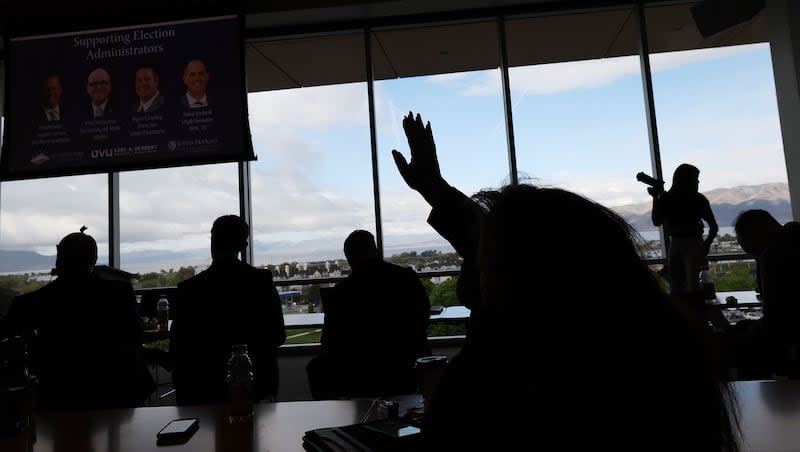
- Oops!Something went wrong.Please try again later.
- Oops!Something went wrong.Please try again later.
Utah leaders are at the forefront of a nationwide initiative to increase election confidence among conservative voters.
The state’s top election officers, Lt. Gov. Deidre Henderson and her director of elections, Ryan Cowley, spoke at a Sutherland Institute event on Tuesday along with the man behind an ambitious project to bring together hundreds of election administrators and scholars across the country to promote “a conservative agenda for democracy.”
Scott Warren, who leads the joint program from the SNF Agora Institute at Johns Hopkins University and the center-right think tank R Street, presented the initiative’s “conservative principles for building trust in elections” in a message that was echoed by Henderson, Cowley and former Utah Gov. Gary Herbert.
“Voter access and ballot security are paramount, especially in the age of some saying elections are illegitimate or have been stolen,” Herbert said in a prepared video statement. “Unfortunately, this has become an all too common feature of campaigns and it undermines our system of self government.”
Herbert called on attendees to adopt the principles developed by the Agora Institute and R Street partnership, which Henderson and the Sutherland Institute have been involved with since shortly after it was formed about 18 months ago. The principles are: 1) publicly affirming the integrity of elections in Utah and across the country, 2) using transparency and outreach to boost election confidence, and 3) inviting continuous improvement in election processes to increase trust in election results.
As part of the event held at Utah Valley University, Warren released new polling data commissioned by the partnership on Utahn’s election confidence, candidate preferences and media consumption.
Do Utahns trust federal elections?
The poll, conducted by Gallup in March, found that a majority of Utahns who identify as “conservative” are not confident that President Joe Biden was the legitimate winner of the 2020 presidential election. Only 17% of Utah conservatives are “very confident” that Biden won fairly and 20% were “confident.” Over 30% were “not too confident” and another 30% were “not at all confident.”
The distinction between conservatives who believe Biden’s win was legitimate and those who don’t correlates with other divides among conservatives. Utah conservatives who believe Biden won are more likely to have voted in 2020 (82%) than those who don’t believe he was the legitimate winner (62%), the poll found. They are also more likely to have always been a Republican, 70%-61%.
The divide extends to feelings surrounding the 2024 election: 90% of Utah conservatives who believe Biden’s win was legitimate, and 53% of those who don’t, have some or a lot of confidence that other states’ legislatures will certify the winning presidential candidate in 2024 “regardless of party.” 51% of Utah conservatives who believe Biden’s win was legitimate, and just 19% of those who don’t, think that Democrats will accept the 2024 presidential election if they lose.
Utah conservatives who believe Biden won the 2020 election are unique in the nation in describing themselves as Romney Republicans (31%) or Never Trump Republicans (25%) and are twice as likely, at 39%, than that same cohort in any other state polled by Johns Hopkins and R Street to say they will vote for someone other than Trump and Biden in 2024, the poll found.
Nearly 80% of Utah conservatives who don’t believe Biden won the 2020 election fair and square say they will vote for Trump in 2020, compared to just 36% of conservatives who have confidence in the results of the 2020 election.
Do Utahns trust state elections?
Utahns are much more united in their perception of their own state’s election integrity.
Election policy scholar Derek Monson presented a Sutherland Institute poll conducted by Y2 Analytics in February which found over 70% of Utahns have confidence that the state’s decade-old vote-by-mail system counts ballots accurately, produces fair outcomes and is secure.
The same percentage of Republicans say they like how vote-by-mail allows them to avoid lines at polling places but around half of Republicans are worried about mail-in ballots being hard to track or being sent to the wrong home.
“There’s a high level of confidence that elections in Utah are accurate and receive fair outcomes and that they’re secure,” Monson said.
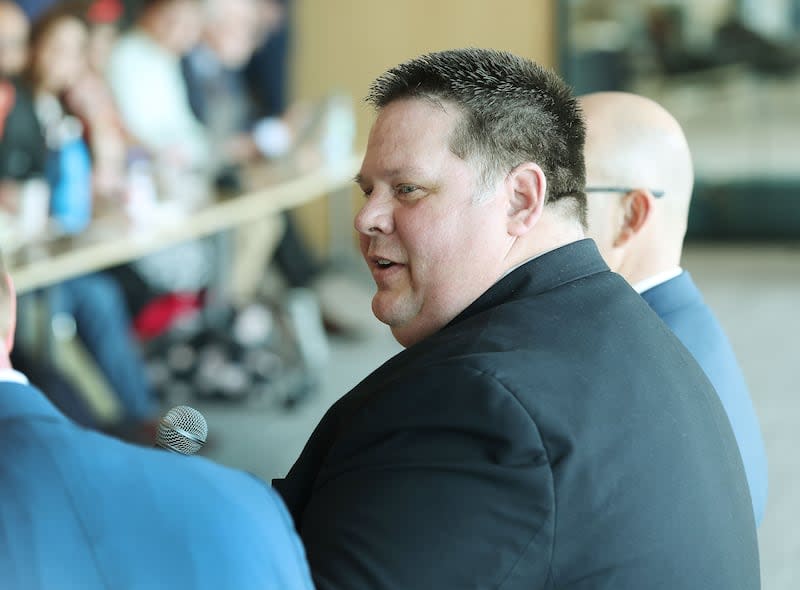
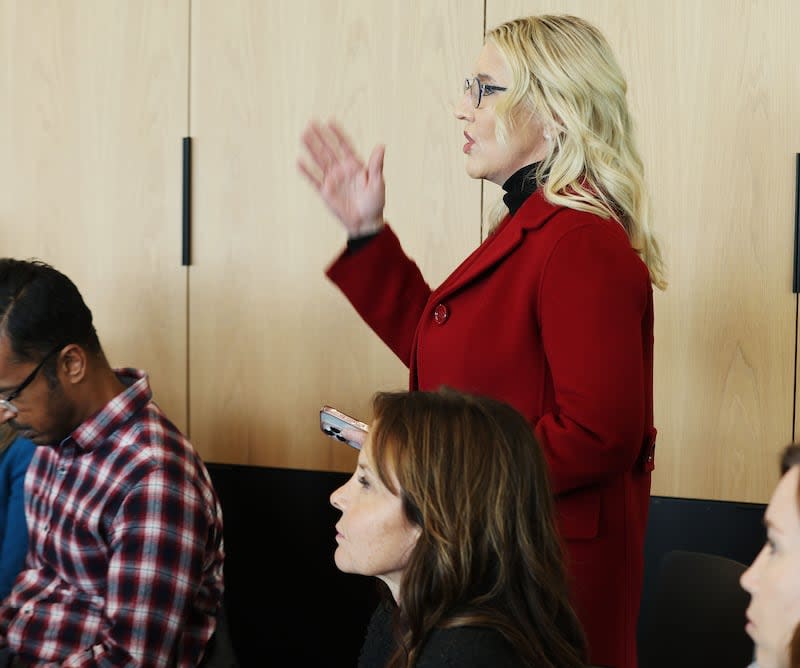
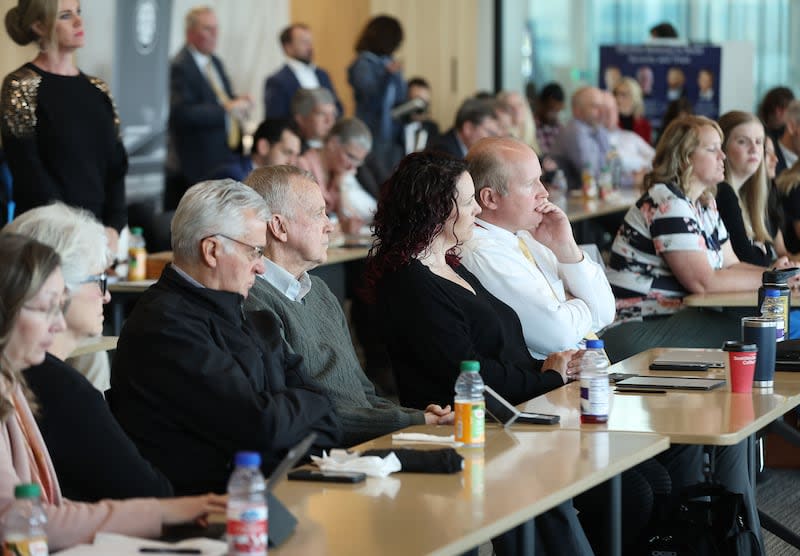
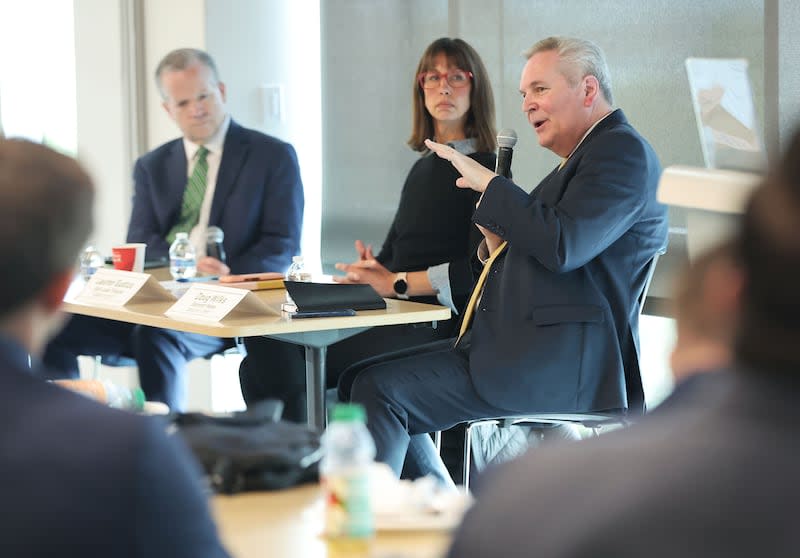
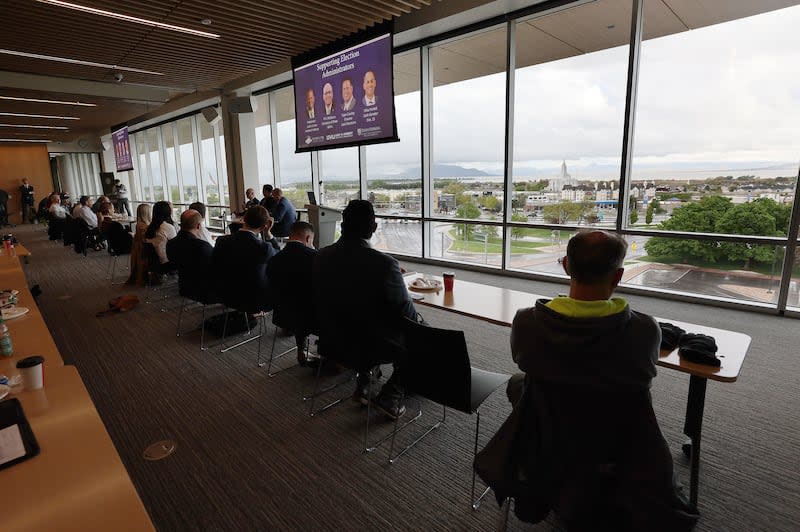
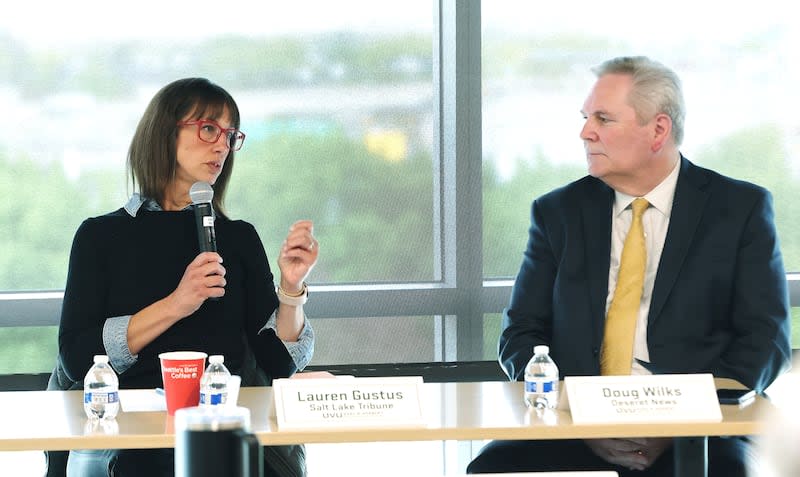
The state’s mature vote-by-mail laws and willingness to pursue reforms to increase election integrity have made Utah an example for the country on election administration, Monson said. This is why the Agora Institute-R Street initiative convened officials and academics from across the country in Park City a year ago to talk about how Utah election officials are doing their job and “persuading Republicans to kind of resist the erosion of trust in things like election outcomes.”
Henderson and Cowley invited Utahns to come and see the processes that build democracy to remind them who it is that makes elections tick: their neighbors.
“As we move into the 2024 election, it’s essential for all of us to continue to promote Utah’s strong track record of election integrity while we strive to continue to improve things so citizens can continue to have high levels of trust in our voting system,” Henderson said in a prepared video statement. “It’s important to remember that elections are not done at a national or even a state level. They’re performed at the local level by our neighbors and members of our communities.”
Cowley, who oversaw elections in Summit and Weber counties before joining the lieutenant governor’s office, lamented the loss of institutional knowledge that has taken place with 20 of Utah’s 29 county clerks leaving since 2020 because of the unprecedented pressure and harassment directed toward local election officers.
According to Cowley, distrust in elections is bipartisan and has more to with whatever the results were of the most recent election than with a faulty election system.
“I think it’s honestly a mechanism of when the polling is done,” Cowley said. “If you were to go back four years, when you have a Republican President and Democrats lost the election, I think the polling would show probably an inverse number.”
Cowley said the best way to improve confidence in elections is to increase transparency surrounding election processes, invite community members to watch their neighbors oversee vote counting and gradually reform the election system based on public feedback, similar to how the state’s vote-by-mail system was developed over two decades.
Tuesday’s event included a panel on supporting election administrators with Idaho Secretary of State Phil McGrane, a breakout session on potential election reforms and a discussion on media reporting and election trust featuring Deseret News executive editor Doug Wilks, Salt Lake Tribune executive editor Lauren Gustus and KSL NewsRadio Inside Sources host Boyd Matheson.

